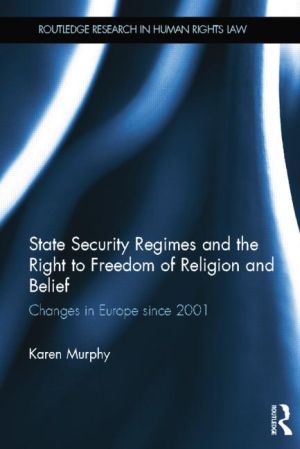
The question of to what extent manifestations of religious beliefs should be permitted in the European public sphere has become a salient and controversial topic in recent years across the EU. High profile situations, causally attributed to the poor integration of immigrants, politicization of religion, or distrust of the secular state have placed the issue onto the media, public and political agendas. However, despite the increasing interest, debates have rarely questioned the conventional wisdom that an increase in the range of security measures employed by governments inevitably leads to a decrease in the human rights enjoyed by individuals.
This book analyses the relationship between state security regime changes and the right to religious freedom in the EU. It presents a comparative analysis of the impact that changes in security regimes have had on religious freedom politics, policies and protections across the EU member states. The book explores the philosophical, legal and empirical relationships between state security and religious freedom in Europe over the last two decades, in the post-2001 environment. In doing so it provides a timely investigation into the role of national legislation, the European Court of Human Rights, and societal trends on religious freedom protections, demonstrating why the relationship identified is one of the most socially significant challenges facing policymakers and jurists in Europe at the present time.